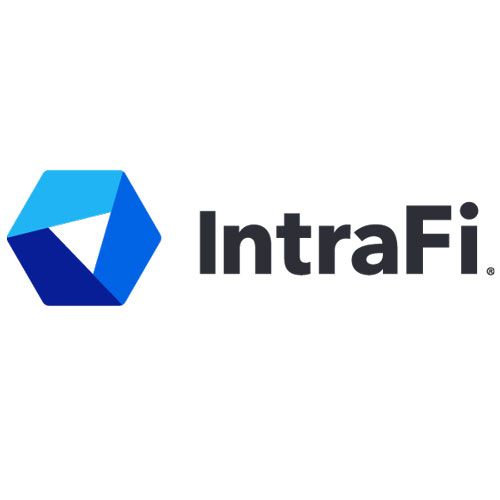Federal regulators expect banks to make innovative CRA investments, so one bank in West Virginia elected to try a new program designed to place deposits at Community Development Financial Institutions (CDFIs) and Minority Depository Institutions (MDIs) in underserved communities.
“We are aware that CRA regulations encourage banks to make a variety of different CRA investments,” said the investing bank’s treasurer. “So, when we heard about this program, we thought it would be a great way to earn CRA credit while also enhancing a low-income market.”
The Advancing Communities TogetherSM (ACTSM ) Deposit Program offers banks a secure, efficient way to place funds into CDFI banks and MDI banks and earn CRA credit under the regulation’s investment and community development tests.
“The ACT Deposit Program is a promising new tool for community and regional banks to earn CRA credit,” says Brian Blake, chief public policy officer at the Community Development Bankers Association and a former CRA officer. “ACT excels at meeting both the spirit and the letter of the CRA, and I believe it is very competitive compared with more complex, costly or time-consuming alternatives.”
ACT’s minimum deposit is $1 million, and the CDFIs and MDIs in the program pay near-market rates on the funds. ACT deposits remain liquid and are eligible for millions in FDIC insurance across IntraFi® network banks because they are placed through the IntraFi Cash Service®. IntraFi has built a network of more than 3,000 banks, including CDFIs and MDIs, that can help keep funds local and provide much-needed financial access in rural, suburban and urban communities across the nation.
The $3.4-billion-asset investing bank in this case study used the ACT Deposit Program to place $1 million into an MDI in Ohio for several reasons.
“First, the interest rate on the deposit is much better than an alternative we had been evaluating,” said the bank’s treasurer. “We also wanted flexibility on the amount invested, so the $1-million minimum appealed to us.
“And another thing that is attractive about the program is if you need access to the funding for some reason, you can bring the funds back at any time. All these factors were extremely attractive to our bank.”
There are no MDIs in the bank’s home state of West Virginia, so it looked to neighboring Ohio to find a relatively new MDI.
“The deposits we receive under the ACT Deposit Program are fuel for the bank to help the community grow and meet its financing needs,” said the MDI’s chairman and CEO.
Opened in May 2023, the MDI is the reincarnation of a bank chartered in the early 20th century during the Great Migration of Black people moving north. “We named our bank after a historic bank that created the first Black hospital here, financed a theater that hosted every Jazz great and helped all those newly arriving workers get credit,” the MDI’s chairman and CEO said. “We want to extend that legacy by financing the revitalization that is happening here.”
The MDI’s mission to help the people in its community build wealth is yet another reason the investing bank decided to make its deposit.
“This investment is very visible,” said the investing bank’s treasurer. “It is helping to grow [the Ohio-based MDI] and its community. That’s more satisfying than buying another municipal water and sewer bond.”
Placing funds through the ACT Deposit Program was easy, the treasurer added, and his bank may increase its deposit in the future.
“It was extremely simple and a fast process,” he said. “[The MDI] provided all the paperwork, and it was very, very easy. We will consider further deposits.”
When asked if other bankers should use the ACT Deposit Program to help bolster their CRA credit, the treasurer did not hesitate.
“I would recommend it,” he said. “It’s an opportunity to do something a little different, and the regulators are looking for folks to do something new — not the same old, tired thing.”
IntraFi is not an FDIC-insured bank, and deposit insurance covers the failure of an insured bank. A list identifying IntraFi network banks appears at https://www.intrafi.com/network-banks. Certain conditions must be satisfied for “pass-through” FDIC deposit insurance coverage to apply.
Deposit placement in the ACT Deposit Program within ICS (the “Program”) is subject to the terms, conditions, and disclosures in the applicable agreements, including the ACT Addendum to the Deposit Placement Agreement. A portion of a deposit placed in the Program may be allocated to IntraFi network banks that are not community development financial institutions or minority depository institutions. The interest rate earned on Program deposits will likely be lower than the interest rate available on deposits outside of the Program.
Deposit placement through an IntraFi service is subject to the terms, conditions, and disclosures in applicable agreements. Deposits that are placed through an IntraFi service at FDIC-insured banks in IntraFi’s network are eligible for FDIC deposit insurance coverage at the network banks. The depositor may exclude banks from eligibility to receive its funds. To meet the conditions for pass-through FDIC deposit insurance, deposit accounts at FDIC-insured banks in IntraFi’s network that hold deposits placed using an IntraFi service are titled, and deposit account records are maintained, in accordance with FDIC regulations for pass-through coverage. Although deposits are placed in increments that do not exceed the FDIC standard maximum deposit insurance amount (SMDIA) at any one bank, a depositor’s balances at the institution that places deposits may exceed the SMDIA before settlement for deposits or after settlement for withdrawals or be uninsured (if the placing institution is not an insured bank). The depositor must make any necessary arrangements to protect such balances consistent with applicable law and must determine whether placement through an IntraFi service satisfies any restrictions on its deposits. IntraFi, ICS, IntraFi Cash Service, and the IntraFi logo are registered service marks, and Advancing Communities Together and ACT are service marks, of IntraFi LLC.








